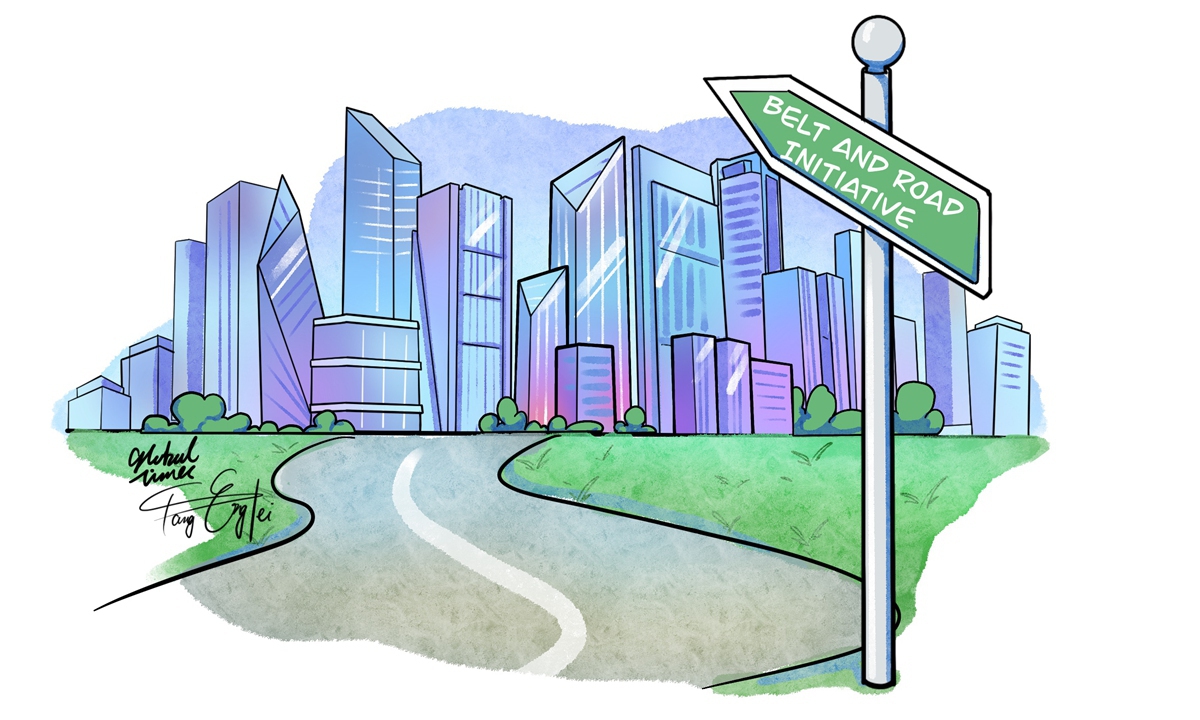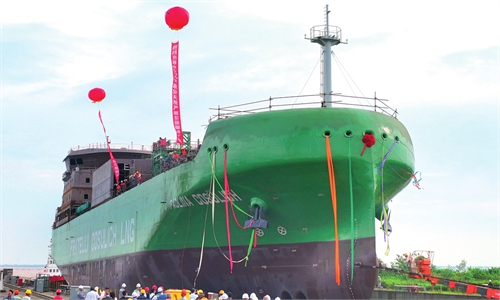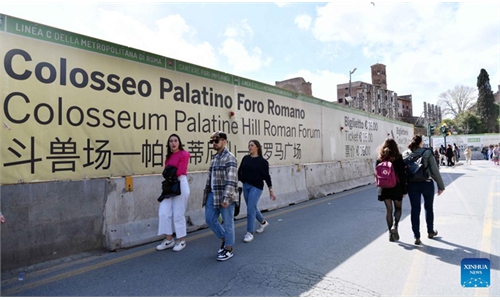
Illustration: Tang Tengfei/Global Times
More than 700 years ago, the description of the Oriental world in The Travels of Marco Polo sparked curiosity among Europeans. Nowadays, the Western media describes China's cooperation with Italy under the Belt and Road Initiative (BRI) as a Trojan horse for "China's entry into the West." This raises the question: Is this a step forward or a step backward for the West in the wave of globalization?
According to a Reuters report, US President Joe Biden and Italian Prime Minister Giorgia Meloni met at the White House on Thursday, vowing to deepen economic ties and strengthen cooperation on challenges posed by China. If Italy and the West fail to embrace the China-proposed BRI, globalization in the West will fall behind, or even regress.
It's not our intention to exaggerate the role of the China-proposed BRI in global development. However, this view has emerged because of the way the West has defined the BRI.
In March 2019, during Chinese President Xi Jinping's visit to Italy, the two countries signed a Memorandum of Understanding (MoU) on the BRI. Consequently, Italy became the only G7 country to join the BRI. The G7 is often perceived as a Western bloc, representing economic power and an ideological emblem.
The MoU will be automatically extended for an additional five years in March 2024. Given the current circumstances where the Western world, led by the US, emphasizes ideological differences with China, particularly as China is identified as the US' primary competitor, concerns arise about whether Italy will choose to renew the MoU.
In the final analysis, it is still a question of how to understand today's China and position it as a great power of Eastern civilization, and both Italy and the EU are clearly in a "period of hesitation."
The BRI is a path for two countries, two different civilizations, to further advance cooperation. Unfortunately, it is seen by some Westerners as a tool for China to "invade" Europe and "control" the continent. For the Chinese, what is more important is the resurrection of the ancient Silk Road. The significance of the new connection between Europe and Asia in the 21st century is obviously not something that can be assessed by which party can profit the most. Suppose you have an idea of what the future might be like. In that case, you can foresee the brilliant effects that the cooperation between the two old cities from Rome to Beijing will have on integrating the global economy and culture.
To realize this goal, Europe needs to approach China with equanimity. When China expects and has the capacity to engage with Europe, how Europe views China - whether as a partner for cooperation or as a foreign force seeking to exploit Europe's resources and influence its ideology - becomes the crux of some of the contradictions and frictions between China and Europe.
In an era where globalization has brought about two-way, multi-directional, and irreversible connectivity, competition is bound to become more intense. However, allowing the fear of competition or limiting cooperation space due to competition will only result in heightened apprehensions and fears. This, in turn, may lead to pushback, obstruction, or even closing doors. Such actions would make Italy and Europe more inward-looking, conservative, and retreat from the process of globalization.
It's no surprise the US, as a hegemonic power, views the rise of the forces of other civilizations in the world with a hostile mindset. But Europe should no longer look at the world with such a mentality since the integration process began in the 1950s.
We do not want to see a closed and conservative Europe, and China has no intention to change Europe. The world should not have just one civilization to serve as a guide, and it should not be subjected to the expansion of a particular culture. The intermingling and interaction of different civilizations is the path to joint development in the new era.
It is essential to revisit American political scientist Samuel P. Huntington's "clash of civilizations" doctrine. He talked about the reasons for the phenomenon, and also put forward ideas to resolve or mitigate the clash, which deserves particular attention. He said, "The futures of both peace and Civilization depend upon understanding and cooperation among the political, spiritual, and intellectual leaders of the world's major civilizations." In this sense, the BRI is not a Trojan horse scheme but a pathway through which we can collaborate and enhance mutual understanding.



